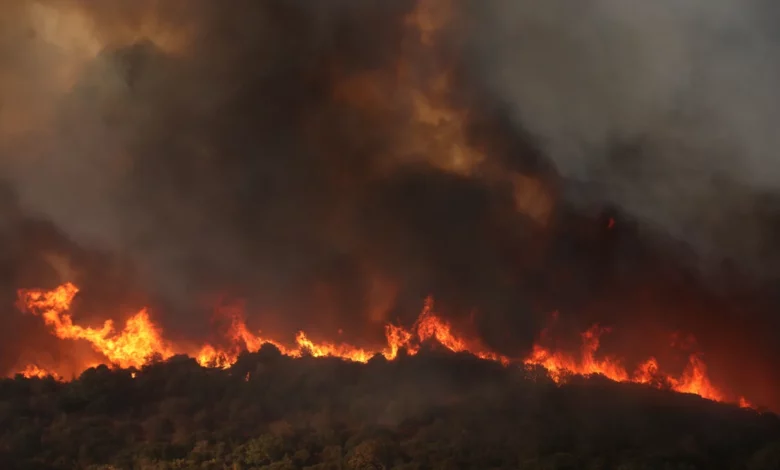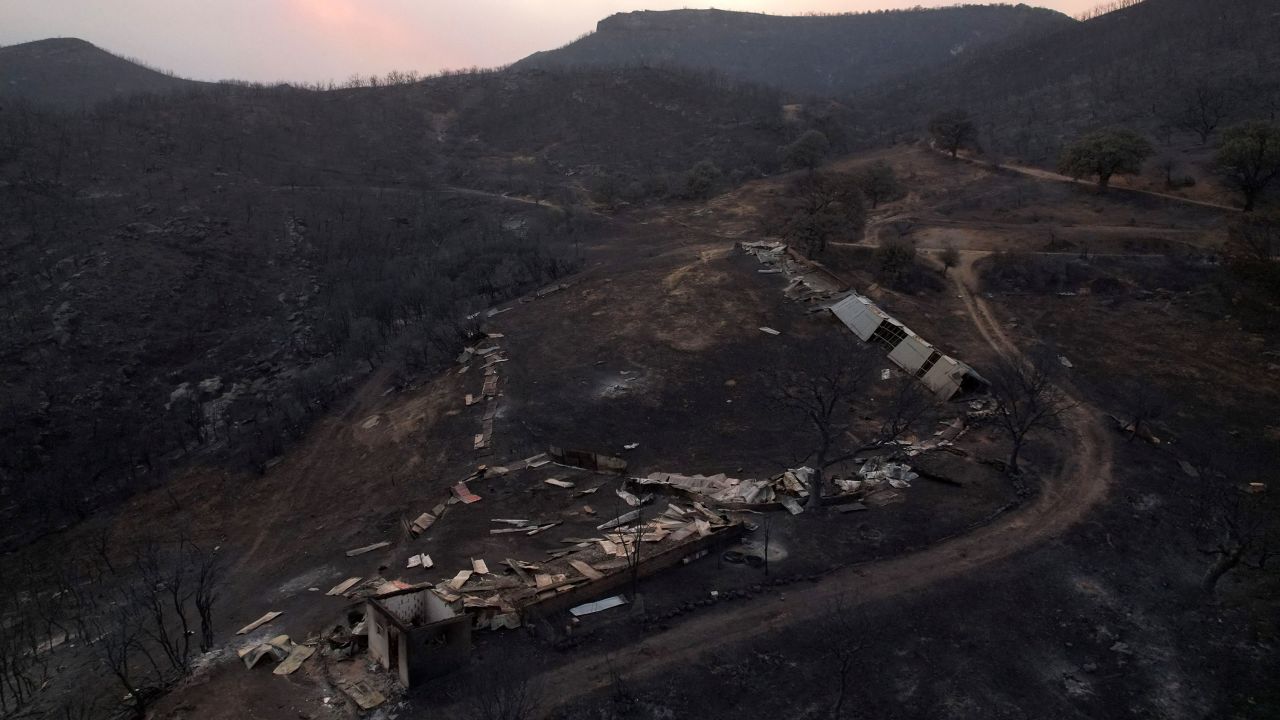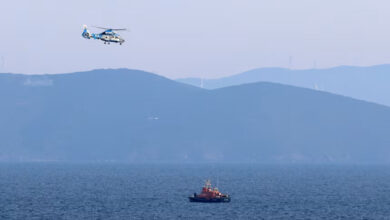
Wildfires in Mount Parnitha, north of the Greek capital Athens, are still out of control Friday, with more forest destroyed overnight.
The biggest fire front line in Greece remains near the northeastern town of Alexandroupolis, in the Evros region.
The burned body of a man was found on a rural road near Dadia national park, near the border with Turkey, state media AMNA reported Friday.
Earlier this week, 18 people were found dead near a village in northern Greece. The fire brigade said Tuesday they may have been migrants. Another person was killed in a fire northwest of the capital Athens on Monday.

Greek police have made 79 arson related arrests, Greek government spokesperson Pavlos Marinakis told public broadcaster EPT Friday.
“What is happening is not just impermissible, but obscene and criminal,” Greek Climate Crisis Minister Vassilis Kikilias said in a statement.
“You are committing a crime against the country. You will not be spared. We will find you and you will be held accountable in Justice,” Kikilas added.
With more than 73,000 hectares burned, the fires in Alexandroupolis are officially the largest wildfires ever recorded in the European Union, according to EU Commissioner for Crisis Management Janez Lenarčič.
Wildfires have intensified around the globe, providing a stark reminder of how the climate crisis is upending lives and inflicting billions of dollars a year in damage.
While wildfires are often ignited by lightning strikes or human activity, they are becoming more frequent because of human-caused climate change. Scientists found, for instance, that climate change made the extreme weather conditions that fueled the 2019-2020 destructive fire seasons in Australia 30 percent more likely to occur.
“We must continue strengthening national and collective prevention and preparedness efforts in view of more brutal fire seasons,” Lenarčič said Thursday on X, formerly known as Twitter.
Across Greece, wildfires have burned through 1.3 billion square meters (130,000 hectares) so far, an EU record, according to the European Forest Fire Information System.
On Friday, CNN witnessed helicopters coming every couple of minutes, dropping up to 11 tons of water on to the wildfires.
Officials also told CNN’s team in Parnitha that helicopters had to stop working overnight, which made containing the fires more difficult.




